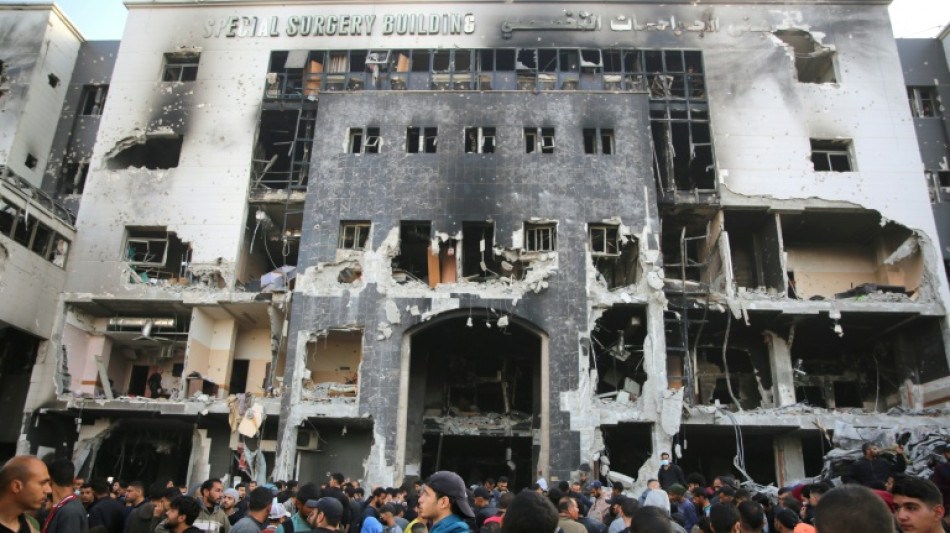
RBGPF
61.8400


Hundreds of people stared at the smoke-blackened ruins of Gaza's biggest hospital on Monday, horrified by the damage and death left behind by a fierce two-week battle between militants and Israeli troops.
The crowd stood amid debris and large mounds of dirt at the foot of a shell-pocked five-story building in the sprawling Al-Shifa complex that was once a shelter for both patients and displaced Gazans.
"Bodies and martyrs are scattered in Al-Shifa Medical Complex. Medical teams are still working in the field to remove the bodies and injured people around and inside," said Fares Afanah, an ambulance service official in northern Gaza.
In the early hours of March 18, Israeli forces launched a raid on the hospital they said targeted Hamas operatives -- an operation that turned into a major battle in and around the complex.
Over the course of two weeks, they said 200 fighters were killed and hundreds more detained -- while the Civil Defence agency in Hamas-run Gaza said "300 martyrs" had been killed.
"There is no medical centre, it was completely destroyed. The mass graves that were built here were destroyed," said Afanah.
When Hamas's unprecedented October 7 attack on Israel sparked the war in Gaza, Al-Shifa quickly became a place where people took refuge, but Israel said a Hamas command and control centre was concealed beneath it.
- 'Not suitable for life' -
Hamas has denied Israel's accusation and an Israeli raid on the hospital in November sparked international concern for the staff, patients and people sheltering in its grounds.
Months later, Israel came back for a longer and more intense operation that included heavy fighting, air strikes and mass arrests.
"Destruction, not even a bed left for a patient... We will be buried here and we will not leave from here," a man at the scene said, speaking on condition he not be named.
The bloodiest ever Gaza war erupted with Hamas's unprecedented October 7 attack which resulted in about 1,160 deaths in Israel, mostly civilians, according to an AFP tally of official Israeli figures.
Israel's retaliatory campaign, aimed at destroying Hamas, has killed at least 32,845 people, mostly women and children, according to the Gaza health ministry.
Al-Shifa is surrounded by a Gaza City neighbourhood that was flattened in spots; one AFP image shows a tangle of steel, shattered concrete and the remains of a tree.
Yet amid the destruction, there were still people, some carrying bags or pushing bikes.
"Of course, the bombings were terrifying, they were bombing day and night. People here were making do with the food they had left," said Palestinian Anwar el Jondi.
"People hadn't eaten for days."
A recent UN-backed report warned that the north of the Gaza Strip faces imminent famine unless a surge of aid arrives in the area.
But getting food to northern Gaza faces serious challenges, and several instances of deadly gunfire or stampedes have only added to the difficulty of getting food to people who need it.
"When you look at the destruction around it, it's as if an earthquake or a nuclear bomb had hit the place," el Jondi added.
The level of destruction at the complex, which once housed specialist surgery and maternity centres, was so massive as to raise questions about its future.
"The hospital is completely destroyed, which means that it is no longer suitable for anything, either for patients or for life, it has been almost completely destroyed. This means that the hospital needs to be demolished," one Palestinian man said, declining to give his name.
N.Patterson--TFWP